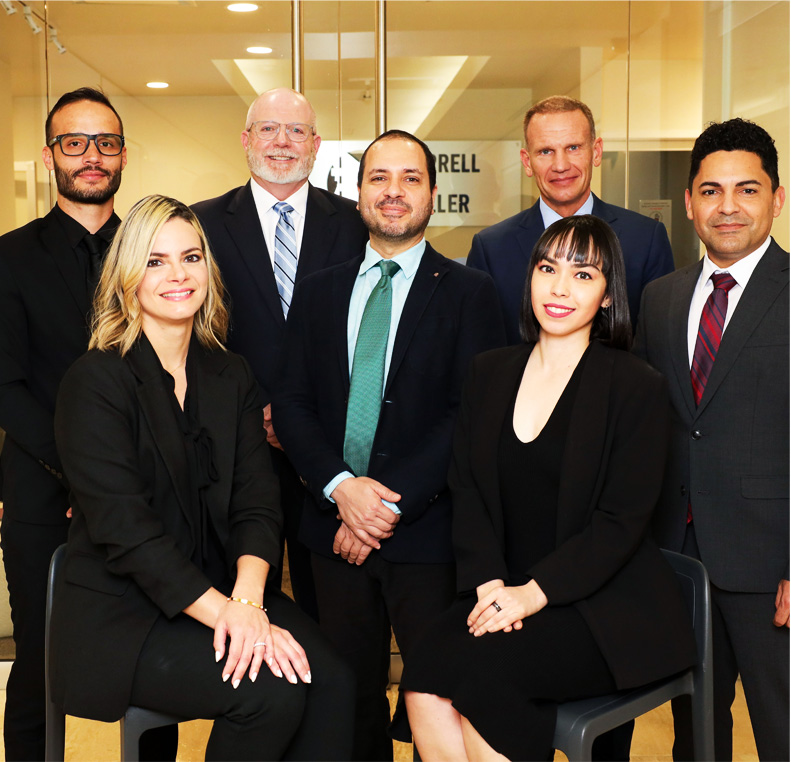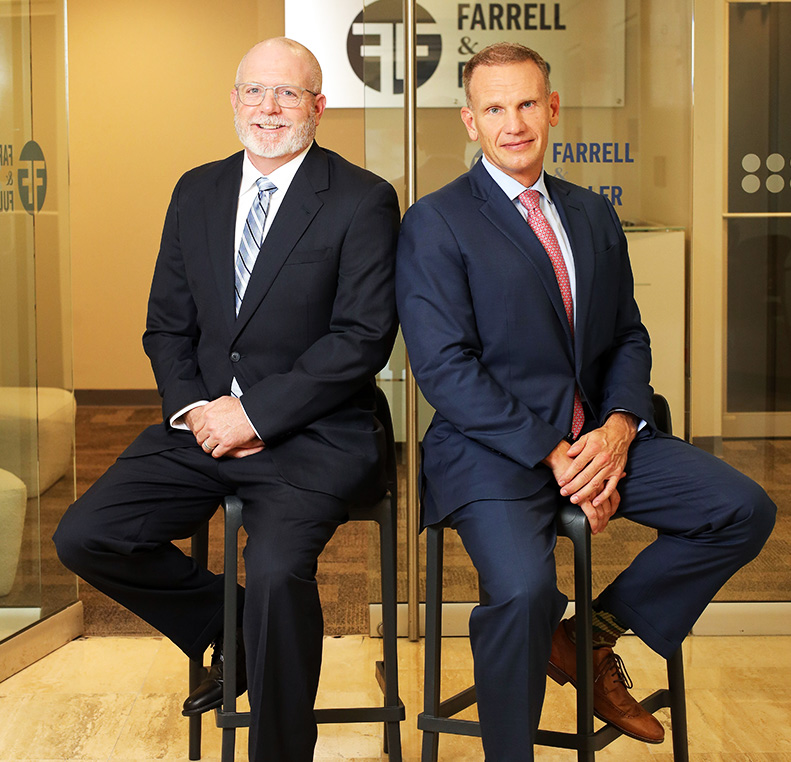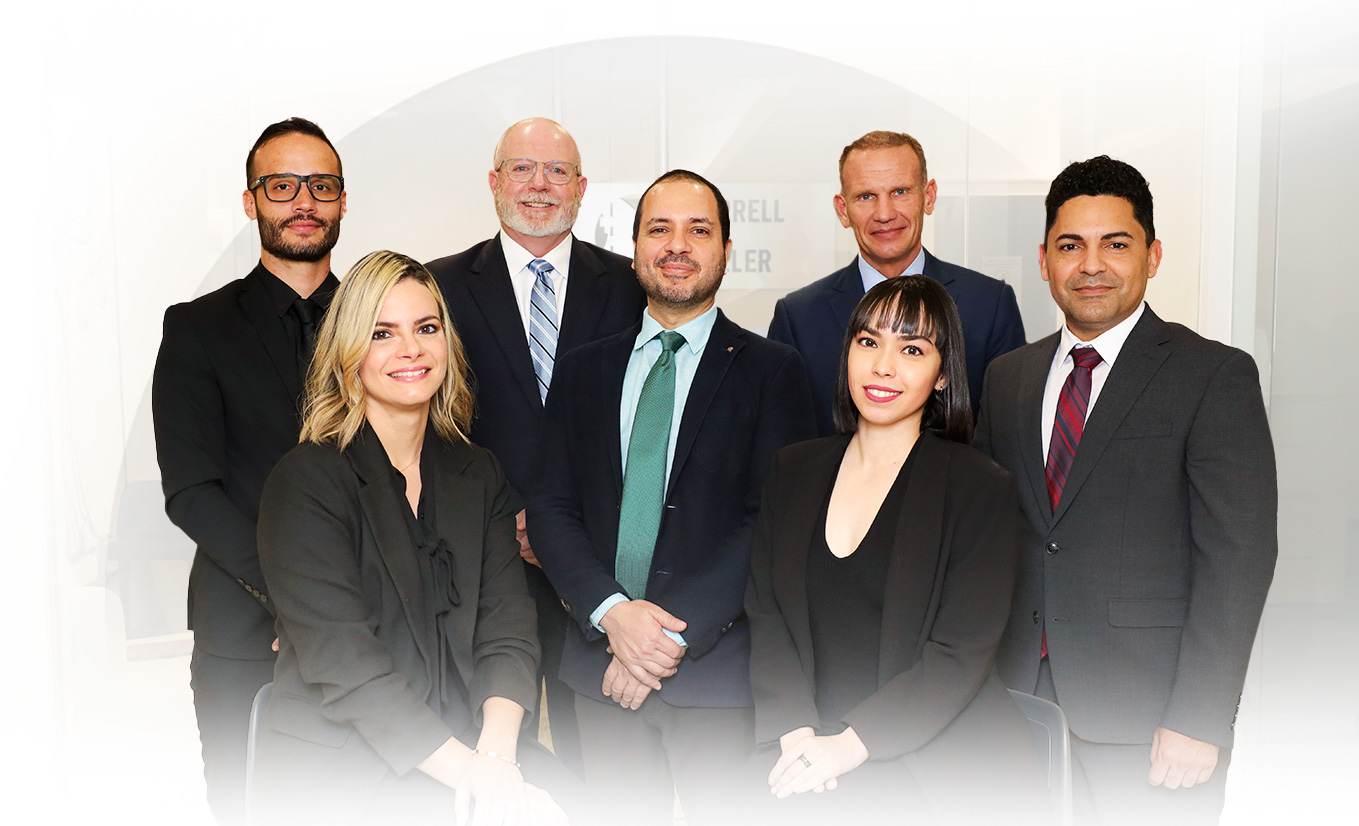Over $60 Billion Won

On The Frontlines of Mass Tort Litigation
At Farrell & Fuller, we specialize in mass tort litigation, advocating for those harmed by negligence. Our dedicated team is committed to securing justice and compensation for our clients.
Fearless. Formidable.
Farrell & Fuller
At Farrell & Fuller, we do not measure success in headlines. We measure it in lives changed, systems challenged, and justice delivered. These numbers reflect what is possible when committed trial lawyers stand up to corporate wrongdoing.
-
60 Billion Recovered in Opioid Litigation
Mike Fuller and Paul Farrell Jr. helped lead the national opioid litigation that forced pharmaceutical manufacturers, distributors, and dispensers to pay more than $60 billion in settlements to communities across the country.
-
1989 Opioid Lawsuits Consolidated Into The Largest Mass Tort in U.S. History
Farrell & Fuller has served as lead or co-lead counsel for more than 700 cities, counties, and states, consolidating over 2000 Opioid lawsuits and helping them recover from the damage caused by systemic public health failures and corporate negligence.
-
79550 Product Liability Claims Consolidated
In one of the earliest transvaginal mesh cases filed in the country, Paul Farrell, partnering with Mike Fuller, helped launch a national MDL that brought together over 80,000 women harmed by a defective medical device. The case held manufacturers accountable and changed how these products are regulated.

Our Focus: Mass Torts
We focus exclusively on complex litigation that demands accountability from the most powerful industries. Our mass tort practice spans pharmaceutical, environmental, and consumer cases, representing thousands of individuals and communities seeking justice nationwide.

-
National
Opioid LitigationThe national opioid crisis has led to a surge in overdose deaths, devastating families and communities. Efforts to address the crisis involve improving access to addiction treatment, enhancing prescription monitoring, and promoting awareness about the dangers of opioid misuse. Despite these efforts, the crisis continues to have a major impact on the U.S., with millions affected by addiction and its consequences.
-
California
WildfiresThe California wildfires that ignited on January 7, 2025, were among the most destructive in recent memory, with three major blazes: Eaton, Palisades, and Hurst. Eyewitness accounts and videos show sparks flying from SCE’s transmission towers moments before the Eaton Fire erupted. These failures are emblematic of the utility’s alleged negligence.
-
Insulin
Price FixingAs insulin prices continue to rise, many patients are forced to make impossible choices between their medication and basic needs like food and rent. Plaintiffs in these cases are demanding substantial compensation for the exorbitant amounts paid due to artificially inflated prices. These lawsuits aim to hold pharmaceutical companies accountable for price gouging.
-
RoundUp
Round Up, the widely used herbicide in residential and commercial spaces, has become a central issue in significant legal and public health debates. Its active ingredient, glyphosate, is linked to serious health concerns ranging from cancer to neurodegenerative diseases. As of 2025, despite an $11 billion settlement that addressed nearly 100,000 lawsuits, over 54,000 cases remain unresolved.
-
Gopher Resource Smelting Factory
At the Gopher Resource factory in Tampa, lead contamination has resulted in serious health repercussions for workers and their families, including high blood pressure, kidney dysfunction, cardiovascular disease, cancer, and neurological problems. This pivotal case highlights urgent questions about corporate responsibility and the human cost of corporate negligence.
-
Camp Lejeune Water Contamination
The contamination at Camp Lejeune Marine Corps base in North Carolina exposed residents to hazardous chemicals over several decades, leading to significant health issues for potentially hundreds of thousands of individuals. The primary contaminants are substances linked to a host of serious health issues, including various cancers, birth defects, and other chronic diseases.

Your Fight is Our Fight
At Farrell & Fuller, we do not just take cases. We take up causes. When you come to us, your fight becomes ours. Whether you are facing a pharmaceutical company, a negligent utility, or a system that failed you, we stand beside you from day one. We are relentless in the pursuit of justice because we know what is at stake. You deserve more than a legal strategy. You deserve a legal partner who is committed to making change.
-
We Lead from the FrontYou work directly with the lawyers handling your case in court, not just names on the letterhead.
-
We Take The Cases That MatterWe pursue litigation that drives change, not headlines. If we take your case, it is because we believe in it.
-
We Treat Clients Like People, Not NumbersYou will speak to a person, not a machine. Our bilingual team is here to answer your questions and keep you informed.
-
We Fight for ChangeVerdicts matter, but so does accountability. Our cases aim to stop the harm from happening again.

awards & Media mentions



















.svg.2502241032137.png)

.2504281331118.png)

